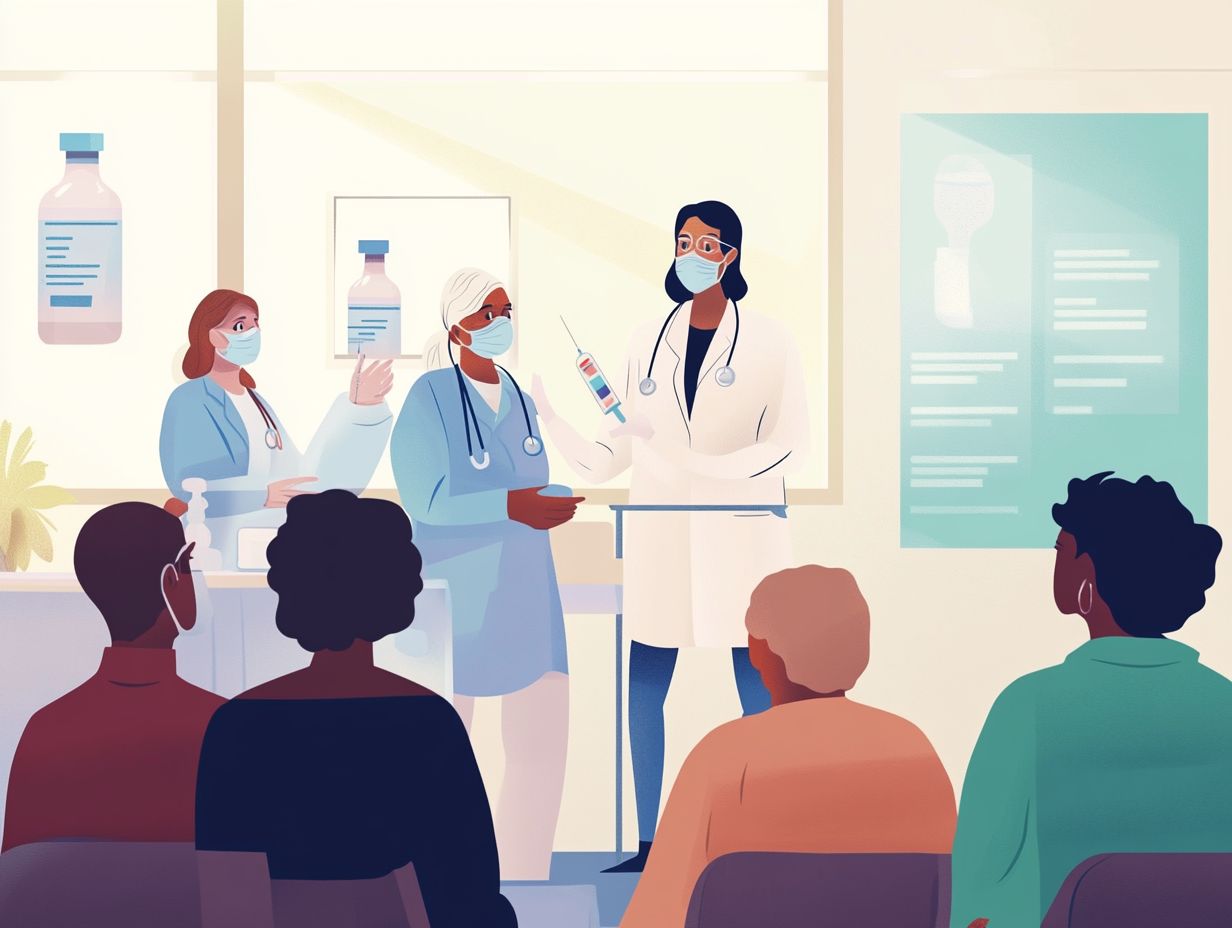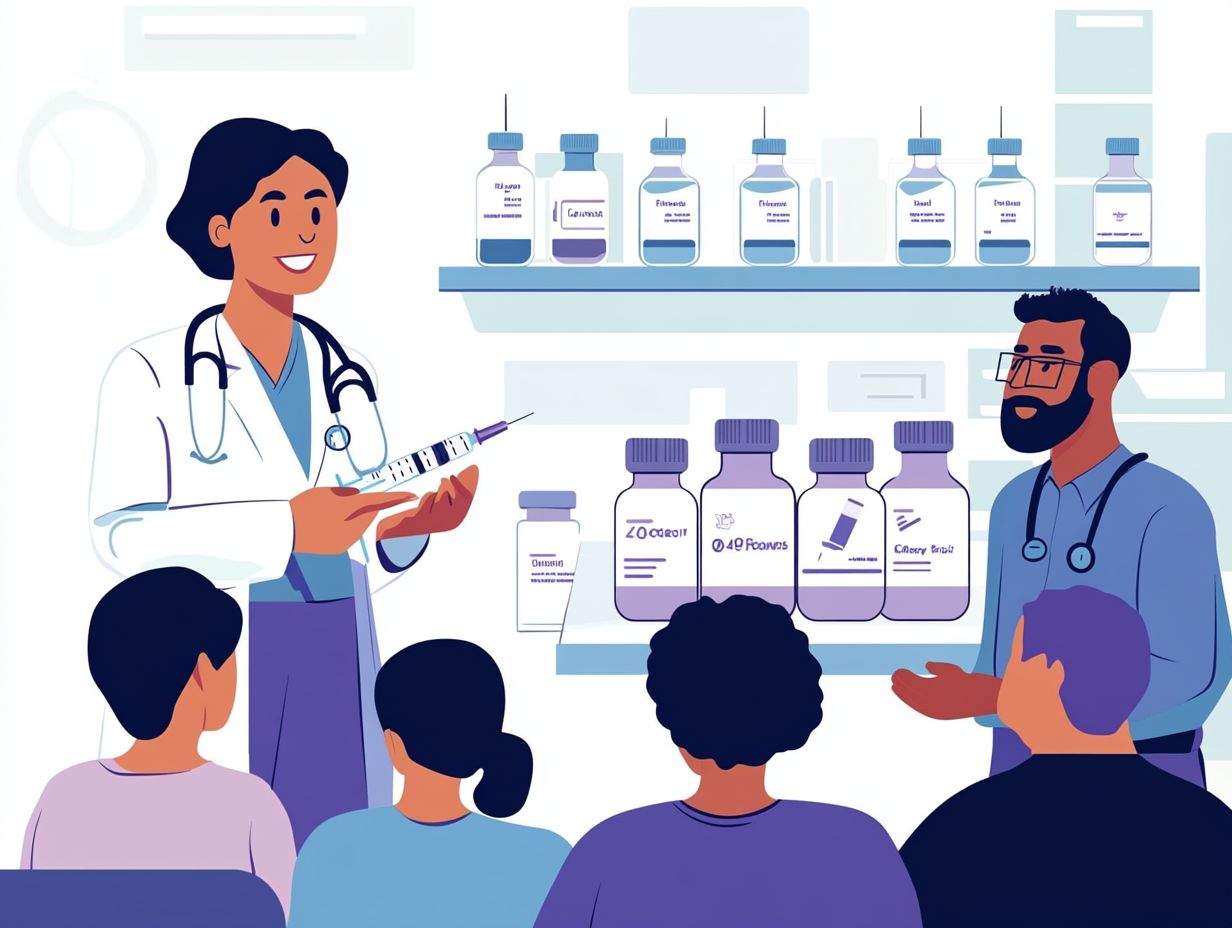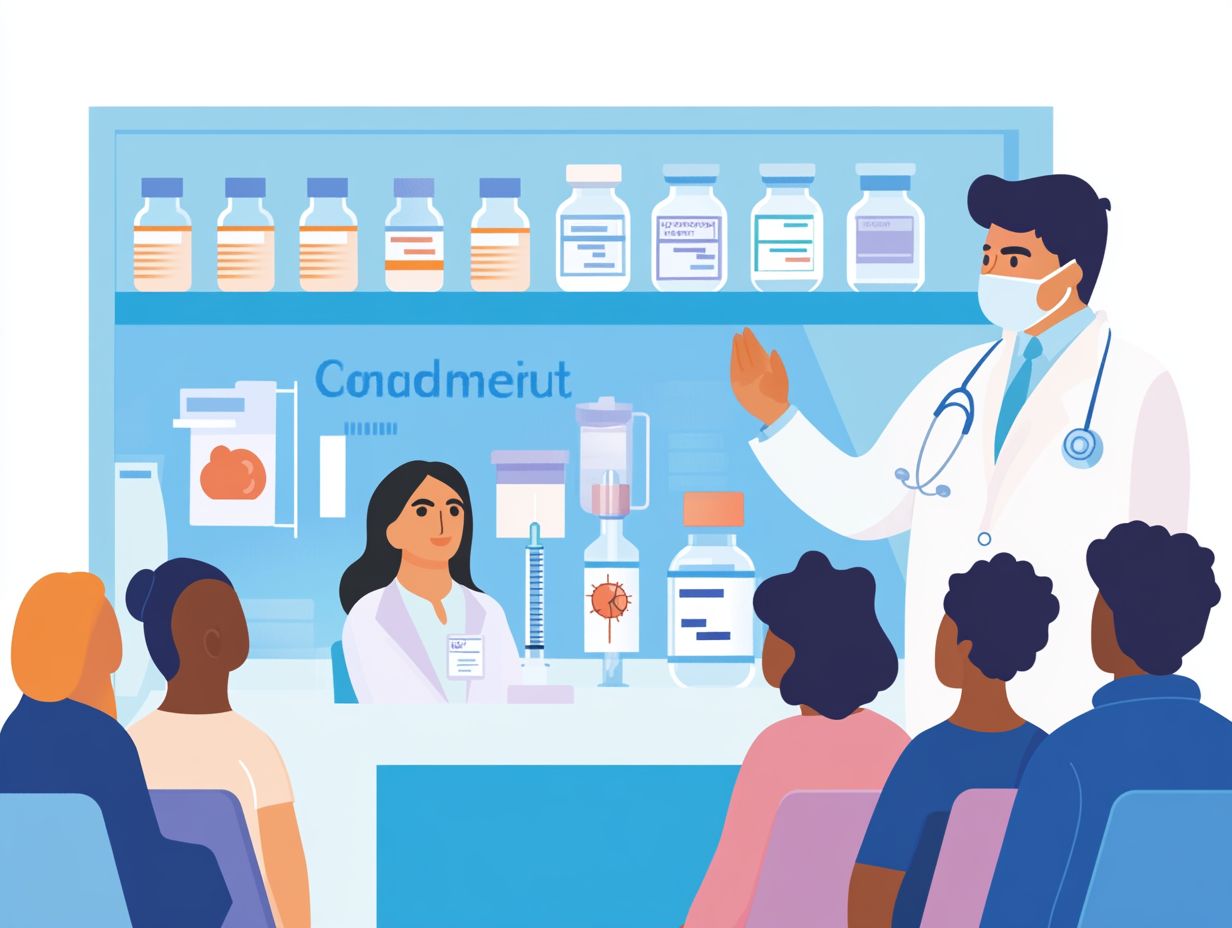Vaccines are vital tools in the fight against cancer, offering a preventative measure against viruses that increase cancer risk. By targeting viruses such as the Human Papillomavirus (HPV), vaccines can significantly reduce the incidence of certain cancers, like cervical cancer, thus improving healthcare outcomes and decreasing cancer-related deaths. The development of these vaccines, including personalized vaccines, is a significant milestone in preventive cancer strategies.
Understanding the connection between vaccines and cancer is crucial, as vaccines like Gardasil and Cervarix stimulate the immune system to produce antibodies that protect against HPV-related cancers. This makes them an essential component of comprehensive cancer prevention strategies. Vaccine research, including advancements in mRNA vaccines, continues to enhance our ability to combat cancer effectively.
Recommended vaccines for cancer prevention include:
- Provenge vaccine, which is used in prostate cancer treatment
- WHO and CDC recommended vaccines for various HPV types
- Gardasil, which targets HPV-related cervical cancer and various HPV types
- The BCG vaccine, which is used in bladder cancer treatment
These vaccines are classified into preventive types, which stop cancer from developing, and therapeutic types, which treat existing cancers by enhancing the body’s immune response. Vaccine development plays a crucial role in these classifications, continuously improving vaccine technology for better outcomes.
Evaluating the effectiveness of cancer vaccines involves assessing their impact on cancer incidence, survival rates, and disease progression, with the HPV vaccine showing remarkable success in reducing cervical cancer rates by 90%. Clinical trials play a pivotal role in determining these effectiveness metrics. Despite their benefits, it is important to consider potential side effects and ensure proper administration for maximum efficacy.
Key Takeaways:
The Importance of Vaccines for Cancer Prevention

Vaccines play an essential role in cancer prevention by targeting viruses like Human Papillomavirus (HPV) that increase cancer risk.
Vaccines, such as those preventing HPV, reduce the incidence of cervical cancer, significantly impacting cancer prevention in populations. In India, healthcare initiatives focusing on vaccine accessibility are crucial.
Vaccination programs help improve healthcare outcomes by lowering cancer-related deaths.
Understanding the Link Between Vaccines and Cancer
Vaccines prevent cancer by stimulating the immune system to recognize viruses that can cause cancer, such as the human papillomavirus (HPV).
HPV vaccines like Gardasil and Cervarix reduce the risk of cervical and other cancers by prompting the body to produce antibodies against HPV.
Cancer vaccines work by preventing viral infections that lead to cancer and are an essential part of cancer prevention strategies. Innovations in cancer treatment, including therapeutic cancer vaccines, are essential for comprehensive healthcare strategies.
Recommended Vaccines for Cancer Prevention
Recommended vaccines for cancer prevention include:
- Gardasil, which prevents cervical cancer caused by HPV types.
- The BCG vaccine, used for bladder cancer treatment.
Types of Vaccines and Their Benefits
Types of vaccines include preventive vaccines and therapeutic vaccines.
Preventive vaccines, like CERVAVAC for HPV, help prevent cancer by stimulating the immune system against viruses that can cause cancer.
Therapeutic vaccines, like sipuleucel-T for prostate cancer, treat existing cancers by enhancing the immune response against cancer cells.
Benefits of these vaccines include reducing cancer risk and improving treatment outcomes.
Effectiveness of Cancer Vaccines

The effectiveness of cancer vaccines is assessed by their ability to prevent or treat cancer through clinical trials.
Cancer vaccines, like CERVAVAC and Provenge, work by stimulating the immune system to target and destroy cancer cells.
Clinical trials measure the success of vaccines in reducing cancer incidence, improving survival rates, and preventing disease progression.
Effectiveness varies depending on the type of cancer and the specific vaccine used.
Evaluating the Success Rates of Vaccines
Evaluating the success rates of cancer vaccines involves assessing clinical trial data to measure the effectiveness in cancer treatment outcomes.
Success rates are determined by metrics such as overall survival rates, progression-free survival, and the ability to activate the immune system against cancer cells.
The HPV vaccine demonstrates a 90% reduction in cervical cancer rates, showcasing its effectiveness.
Side Effects and Risks of Cancer Vaccines
Cancer vaccines can cause side effects such as soreness at the injection site, fever, fatigue, and headaches.
Cancer vaccines, like CERVAVAC and Gardasil, involve risks like allergic reactions and, in rare cases, autoimmune responses. Monitoring through clinical trials helps manage these risks effectively.
Side effects vary based on individual immune responses and the specific vaccine administered.
Possible Adverse Reactions and How to Manage Them
Cancer vaccine adverse reactions include soreness at the injection site and fever.
Severe reactions like allergic responses or significant fatigue require medical attention.
Managing mild side effects involves using over-the-counter pain relievers, staying hydrated, and resting.
Monitoring symptoms and communicating with healthcare providers enhances safety.
Obtaining and Administering Cancer Vaccines

Obtaining and administering cancer vaccines involves sourcing vaccines through healthcare providers and ensuring proper storage and distribution to clinics. In rural areas, outreach programs are critical for enhancing vaccine accessibility, aligning with the National Immunization Schedule.
Administration requires trained healthcare professionals to deliver vaccinations to prevent diseases like cervical cancer effectively.
In rural areas, mobile clinics and outreach programs help increase vaccine accessibility.
Accessing Vaccines and Proper Administration Techniques
Accessing vaccines for cancer prevention involves consulting local health services for eligibility and vaccination programs.
Proper administration techniques require following established guidelines to ensure vaccine effectiveness.
Healthcare professionals provide guidance on vaccination schedules, improving access and ensuring correct administration.
Frequently Asked Questions
What are essential vaccines for cancer prevention?
Essential vaccines for cancer prevention include the HPV vaccine, hepatitis B vaccine, and the hepatitis C vaccine. The CRI and health authorities like WHO ensure these vaccines are part of the National Immunization Schedule.
Why are these vaccines considered essential for cancer prevention?

These vaccines protect against viruses that can cause certain types of cancer, such as cervical, liver, and liver cancer.
Who should receive these essential vaccines?
The HPV vaccine is recommended for both males and females around 11-12 years old, while the hepatitis B and C vaccines are recommended for high-risk individuals and those with weakened immune systems.
Are these vaccines safe?
Yes, these vaccines have been rigorously tested and approved by health authorities. They have been shown to be safe and effective in preventing certain types of cancer.
Can these vaccines completely prevent cancer?
No vaccine is 100% effective, but these vaccines have been shown to significantly reduce the risk of developing certain types of cancer. It is still important to continue regular cancer screenings and follow other recommended preventive measures.
Where can I get these essential vaccines?
These vaccines are available at most healthcare providers and clinics. You can also check with your local health department for information on vaccine availability and eligibility.





